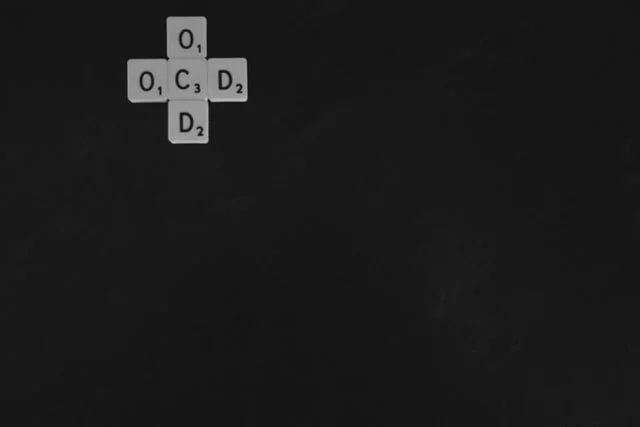Services
OCD Treatment & Therapy in Tampa
We offer therapy in Tampa and St. Petersburg for those with Obsessive Compulsive Disorder and related disorders.
What is Obsessive Compulsive Disorder?
Obsessive Compulsive Disorder, commonly referred to as OCD, is a mental health disorder characterized by obsessions, which are unwanted thoughts, images, or urges that often trigger intense anxiety that greatly impacts the ability to function in everyday life. It involves two main components: obsessions and compulsions.
Obsessions
Obsessions are unwanted and intrusive thoughts, images, or urges that repeatedly enter a person’s mind. These thoughts can be distressing or disturbing, and they often cause a lot of anxiety. For example, someone with OCD might constantly worry about germs and contamination, even when there's no real danger.
Compulsions
Compulsions are behaviors or rituals that a person feels driven to perform in response to their obsessions. These actions are usually aimed at reducing the anxiety caused by the obsessive thoughts, even if they only provide temporary relief. For example, someone worried about germs might wash their hands excessively, sometimes for hours a day.
Common Obsessions
Obsessions can vary widely, but some of the most common types:
Contamination: Fear of germs, dirt, or illness. For example, worrying excessively about touching doorknobs or shaking hands.
Harm: Fear of causing harm to oneself or others, either intentionally or accidentally. This might include worrying about leaving the stove on and causing a fire.
Symmetry and Order: Needing things to be arranged in a particular way or to be symmetrical. For instance, feeling distressed if objects are not perfectly aligned.
Forbidden or Taboo Thoughts: Intrusive thoughts about inappropriate or violent acts. These thoughts can be sexual, religious, or aggressive in nature.
Doubt: Persistent feelings of doubt and uncertainty, such as questioning whether a task was done correctly, like locking the door or turning off appliances.
Common Compulsions
Compulsions are repetitive behaviors or mental acts that someone feels compelled to do in response to an obsession. Examples include:
Cleaning and Washing: Excessive hand washing, cleaning surfaces, or showering to reduce contamination fears.
Checking: Repeatedly checking things like locks, appliances, or lights to ensure they are secure or turned off.
Repeating: Performing actions a certain number of times or in a specific pattern, like going in and out of a door several times.
Arranging: Organizing items in a precise way, often to achieve a sense of order or symmetry.
Mental Compulsions: These include repeated counting, praying, or silently repeating words or phrases to reduce anxiety associated with obsessive thoughts.
Hoarding: Difficulty discarding items because of a fear that something bad might happen if they are thrown away.
What Causes OCD Symptoms
These obsessions and compulsions occur because the person with OCD is trying to manage their anxiety and distress. Unfortunately, while performing these compulsions might provide temporary relief, it doesn't address the underlying issues and can actually reinforce the OCD cycle.
Understanding these common obsessions and compulsions helps us see the challenges that individuals with OCD face daily. If you recognize any of these symptoms in yourself or others, it's important to seek help from a mental health professional, as effective treatments are available.
What Type of Therapy is Best for OCD Treatment in Florida?
Forms of behavioral therapy for OCD are most commonly recommended and proven to be highly effective, especially Cognitive Behavioral Therapy (CBT). Specifically, a subtype known as Exposure Response Prevention Treatment (ERP) is utilized for its effectiveness in managing OCD symptoms.
-
OCD Cognitive Therapy is a type of therapy that focuses on identifying and changing negative thought patterns and behaviors. It helps individuals understand how their thoughts, feelings, and behaviors are interconnected, and teaches them strategies to manage and reduce their symptoms.
-
ERP is a specific form of CBT that is particularly effective for OCD. It involves two key elements:
Exposure: This involves gradually and systematically exposing the person to the thoughts, images, objects, and situations that trigger their anxiety and obsessions. For instance, if someone has a fear of contamination, they might be exposed to touching a doorknob or a public surface.
Response Prevention: This step focuses on helping the person refrain from engaging in their usual compulsive behaviors or rituals in response to the anxiety-provoking stimuli. For example, after touching the doorknob, the person would avoid washing their hands immediately.
-
Often individuals working to overcome OCD achieve the greatest results through a combination of approachs. Additional treatments include:
Medication: Selective serotonin reuptake inhibitors (SSRIs) are commonly prescribed for OCD. They can help reduce the symptoms of OCD by affecting the brain's chemical balance.
Acceptance and Commitment Therapy (ACT): This therapy focuses on accepting unwanted thoughts and feelings rather than trying to fight them. It encourages individuals to commit to actions aligned with their values, despite the presence of OCD symptoms.
Support Groups: Group therapy or support groups can provide additional support and understanding from others who are experiencing similar challenges.
Can OCD Be Overcome With Therapy?
Many people who are treating ocd in therapy undergo ERP and CBT see a significant reduction in their OCD symptoms. For some, therapy can lead to complete remission, meaning their symptoms are minimal or non-existent. Others might still have some symptoms but find them much more manageable and less disruptive to their lives.
Long-term Management
Overcoming OCD tendencies is often a gradual process. It's important to:
Stick with Therapy: Regular sessions and commitment to the therapeutic process are crucial.
Practice Consistently: Continually apply the techniques learned in therapy to real-life situations.
Follow Up: Periodic check-ins with a therapist can help maintain progress and address any new or recurring issues.
Effective Treatment Options for OCD Therapy in Tampa
OCD is a challenging mental health condition characterized by intrusive thoughts and repetitive behaviors. Fortunately there are highly effective treatment options available, including OCD Cognitive Therapy and Cognitive Behavioral Therapy for OCD. These approaches are intended to help individuals manage symptoms, regain control over their lives, and reduce the distress caused by OCD.
Cognitive Behavioral Therapy for OCD
Cognitive Behavioral Therapy is generally referred to as the gold standard for treating OCD. A specialized form of CBT called Exposure and Response Prevention is particularly effective. ERP involves gradually exposing individuals to situations that trigger their obsessions while preventing the compulsive behaviors typically used to reduce anxiety. Over time, this process helps desensitize individuals to their triggers, reducing the power OCD has over their lives.
In OCD cognitive therapy, the focus is on identifying and restructuring distorted thought patterns that fuel obsessions. This approach helps individuals recognize that their intrusive thoughts are not dangerous or reflective of their true character, reducing the need to engage in compulsive behaviors. Cognitive therapy is often combined with ERP to maximize effectiveness.
Medication and Side Effects
In some cases, medication can complement therapy for Obsessive-Compulsive Disorder (OCD). Selective Serotonin Reuptake Inhibitors (SSRIs), such as sertraline or fluoxetine, are commonly prescribed. These medications can help reduce the intensity of obsessive thoughts and compulsive behaviors, making therapy more effective. It’s important to consider potential side effects, which may include nausea, fatigue, or changes in sleep patterns.
Why Seek OCD Therapy in Tampa?
At It Begins Within Counseling in Tampa, we offer tailored treatment plans for OCD, incorporating Cognitive Behavioral Therapy, ERP, and other evidence-based approaches. Our therapists understand the unique challenges of living with OCD and provide a supportive environment where you can explore and overcome your symptoms. Whether you’re new to therapy or seeking advanced interventions, we’re here to help you find relief and achieve lasting change.
If you or a loved one are struggling with OCD, reach out to our team today. Together, we can develop a personalized treatment plan to help you break free from the cycle of obsessions and compulsions and reclaim your life.
Understanding OCD in Tampa & Beyond
At It Begins Within Healing Center in Tampa, Florida, we provide expert OCD therapy to individuals across Tampa, St. Petersburg, and the greater Tampa Bay area. The demand for trusted obsessive-compulsive disorder (OCD) therapy is growing, especially for those facing persistent intrusive thoughts and compulsive behaviors.
Key Facts About OCD
The National Institute of Mental Health (NIMH) reports that approximately 3.1 million adults in the United States are living with OCD in a given year. NIMH.
The National Institute of Mental Health (NIMH) notes that about 76% of individuals with OCD have a lifetime history of an anxiety disorder, with GAD being one of the most common NIMH OCD Stats.
These insights align with what we observe in our Tampa practice. OCD can significantly affect mental health, daily routines, and even relationships. With compassionate and effective OCD therapy, our clients are able to regain control and reduce distress. Whether you’re managing obsessive thoughts or seeking relief from compulsions, our team is here to support you every step of the way.

Sessions available for OCD therapy
We offer comprehensive mental health services and are dedicated to the best outcome for our clients. Please reach out to us today to book a session with one of our skilled therapists.




